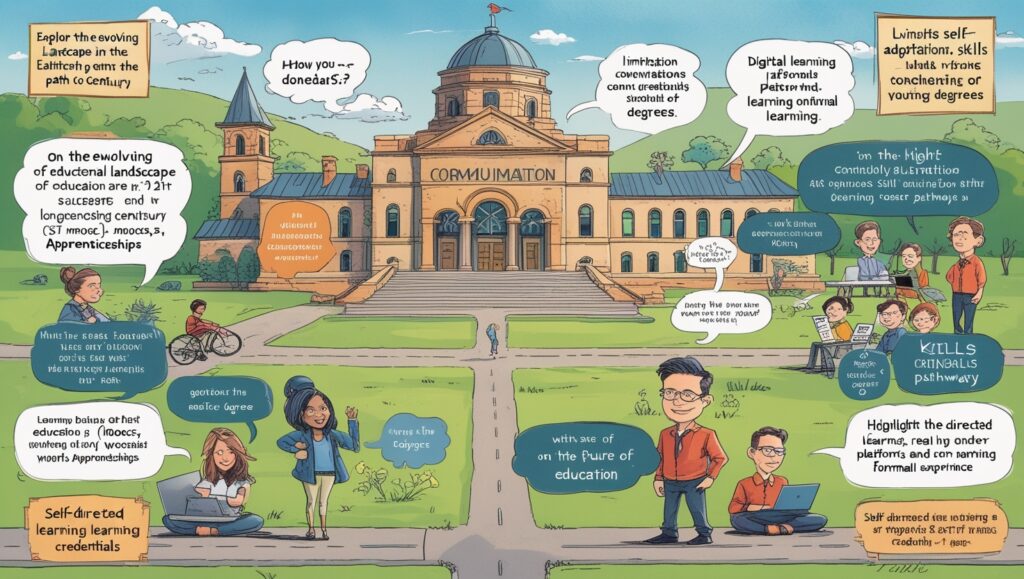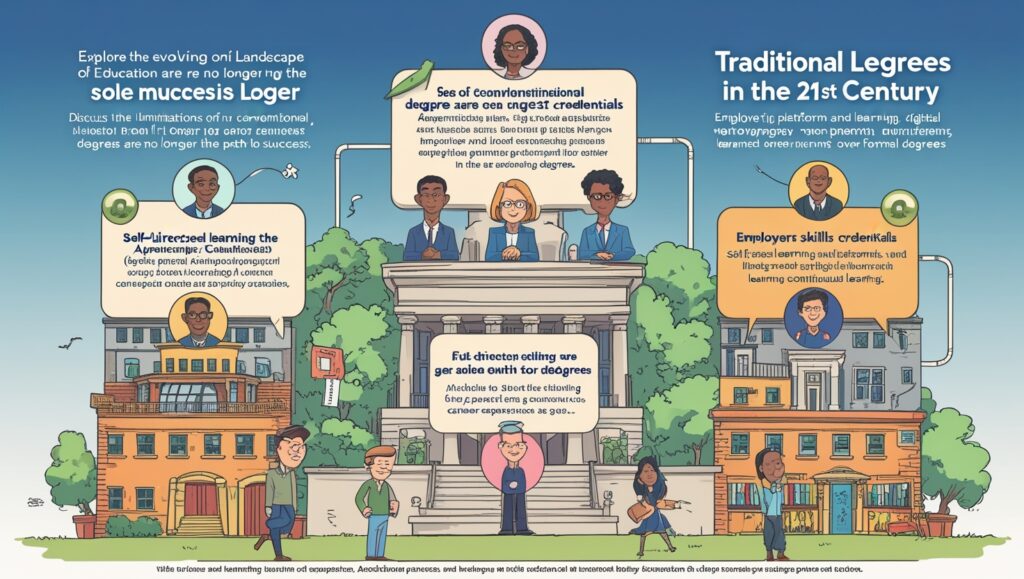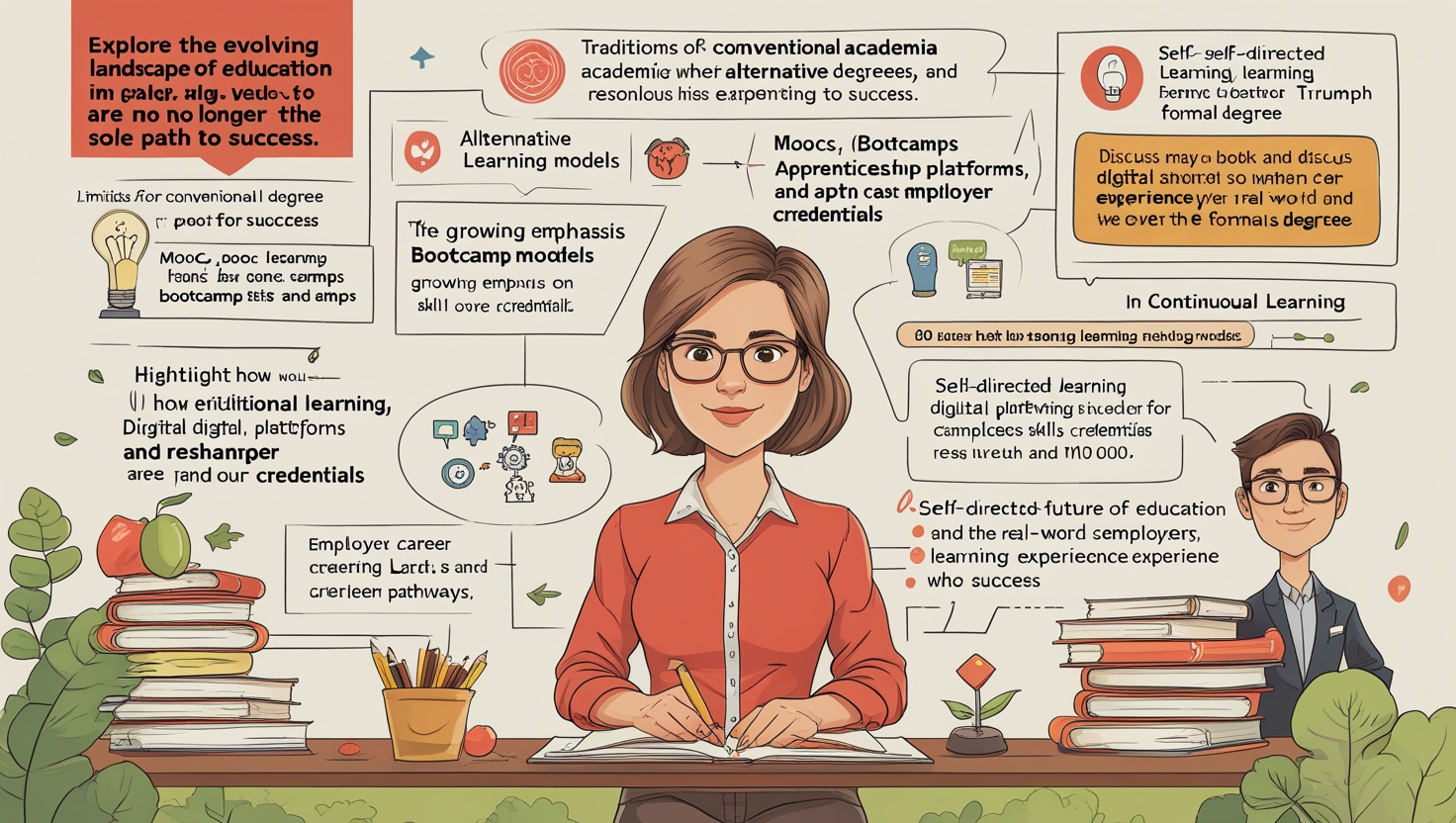Introduction
Beyond the Degrees: Rethinking Education in the Modern Era, Education has long been considered the cornerstone of personal and societal development. Traditionally, the pursuit of academic degrees—whether a bachelor’s, master’s, or doctorate—has been seen as the primary pathway to success. However, in today’s rapidly evolving world, the value of formal degrees is being questioned. With the rise of alternative learning platforms, skill-based education, and shifting workforce demands, many are exploring paths beyond the degrees to achieve professional and personal growth.
This article explores the limitations of traditional degree programs, the emerging alternatives, and how individuals can thrive in the modern economy without relying solely on conventional academic credentials.
The Limitations of Traditional Degrees
1. Rising Costs and Student Debt
One of the biggest criticisms of traditional degree programs is their exorbitant cost. In many countries, especially the United States, student loan debt has reached crisis levels, with graduates burdened by loans that take decades to repay. The return on investment (ROI) for many degrees is diminishing, as entry-level salaries often fail to justify the expense.
2. Rapidly Changing Job Market
The job market is evolving faster than ever due to technological advancements, automation, and globalization. Many degree programs struggle to keep up with industry changes, leaving graduates with outdated skills. Employers increasingly prioritize practical skills and experience over formal qualifications.
3. Lack of Practical Skills
Traditional education often emphasizes theoretical knowledge over hands-on experience. Many graduates find themselves unprepared for real-world challenges, lacking critical skills such as problem-solving, communication, and adaptability.
4. Degree Inflation
As more people earn degrees, their value diminishes in the job market. What was once a competitive advantage has become a basic expectation, forcing individuals to seek additional certifications or experience to stand out.

Alternative Paths to Success
Given these challenges, many individuals are turning to alternative education and career pathways. Below are some of the most promising options beyond traditional degrees.
1. Online Learning & MOOCs
Massive Open Online Courses (MOOCs) like Coursera, Udemy, and edX offer affordable, flexible, and industry-relevant education. Platforms like these provide certifications in high-demand fields such as data science, digital marketing, and programming—often at a fraction of the cost of a degree.
2. Bootcamps & Accelerated Learning Programs
Coding bootcamps (e.g., General Assembly, Le Wagon) and career accelerators provide intensive, hands-on training in tech, business, and design. These programs focus on job-ready skills and often have strong industry connections for placements.
3. Apprenticeships & On-the-Job Training
Apprenticeships combine paid work experience with structured learning, allowing individuals to earn while they learn. Countries like Germany and Switzerland have robust apprenticeship systems that produce highly skilled workers without the need for a college degree.
4. Self-Directed Learning & Portfolio Building
With resources like YouTube, podcasts, and free online tutorials, motivated individuals can teach themselves almost any skill. Building a strong portfolio (e.g., GitHub for coders, Behance for designers) can be more valuable than a degree in creative and technical fields.
5. Entrepreneurship & Freelancing
The gig economy and digital entrepreneurship allow individuals to bypass traditional employment structures. Platforms like Upwork, Fiverr, and Shopify enable people to monetize their skills without formal credentials.
Skills Over Degrees: What Employers Really Want
Companies like Google, Apple, and IBM have removed degree requirements for many roles, focusing instead on skills and experience. Key competencies employers seek include:
- Technical Skills (e.g., coding, data analysis, digital marketing)
- Soft Skills (e.g., communication, teamwork, leadership)
- Adaptability & Continuous Learning
- Problem-Solving & Creativity
Degrees may open doors, but demonstrated ability keeps them open.

The Future of Education: Hybrid Models
The most successful professionals of the future will likely combine formal education with continuous upskilling. Micro-credentials, nanodegrees, and digital badges will supplement (or replace) traditional degrees, allowing for lifelong learning tailored to industry needs.
Conclusion
While degrees still hold value in certain fields, they are no longer the only—or even the best—path to success. The modern economy rewards skills, adaptability, and real-world experience. By embracing alternative education models, self-directed learning, and hands-on training, individuals can thrive beyond the degrees in a rapidly changing world.
The future belongs to those who are willing to learn, unlearn, and relearn—regardless of where or how they acquire their knowledge.

5 thoughts on “Beyond the Degrees: Rethinking Education in the Modern Era”
Comments are closed.